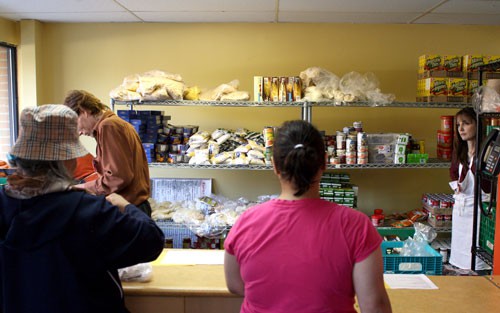
Rhizomes are horizontal, underground plant stems with the ability to create complex root systems. They can expand relentlessly underground, often lying dormant for years, and re-emerge as healthy plants in different locations when the internal and external conditions are right. Each new plant created is connected to the parent but exists as its own independent, flourishing entity. Asparagus, ginger, and Jerusalem artichokes all propagate using rhizomes.
The rhizome can serve as a metaphor for the Canadian food movement – a decentralized network of diverse, self-organizing, interconnected initiatives with no identifiable beginning or end.
Over the past decade, food-related initiatives have proliferated in response to growing concerns about the corporate, industrial food system. These initiatives address issues ranging from more equitable food access and healthy food consumption to agro-ecological production and citizen engagement. Although they have diverse goals, their combined activities challenge the existing food system while seeking to build economically viable and environmentally sustainable alternatives. The individuals and organizations that constitute this movement are becoming increasingly organized, but, unlike traditional social movements, there is not one set of common objectives nor a single, linear path toward them.
Regional networks have emerged in almost every province and territory over the last decade with an explicit mandate to transform the food system by supporting the work of local initiatives and fostering collaboration. The British Columbia Food Systems Network, Food Matters Manitoba, Sustain Ontario, the Nova Scotia Food Security Network and Yukon Food are just a few examples of province- and territory-wide, cross-sectoral alliances that act as intermediaries between initiatives, creating spaces for dialogue and interaction among actors.
At a national level, the recently launched People’s Food Policy brought together many of the ideas and efforts of individuals, community groups, governments and businesses. This first-ever citizen-led food policy is based on hundreds of kitchen table talks held across the country between 2010 and 2011, which were synthesized into 10 discussion papers addressing a wide range of topics including agriculture, health, the environment, fisheries, Indigenous food systems, science and technology, and international food policy. These discussion papers, along with the overarching document “Resetting the Table: A People’s Food Policy for Canada,” constitute the most comprehensive national food policy currently being advanced in Canada.
In the fall of 2010, researchers at the University of Toronto, in collaboration with provincial-level networks, conducted a survey of over 200 organizations working on food-related issues in British Columbia, Manitoba, Ontario and Nova Scotia. The study, which aimed to gather information about the relationships between network actors, confirmed a number of assumptions about the food movement.
Survey respondents were involved in extremely diverse types of work including community development, agriculture, food literacy, food sovereignty, research, civic engagement, policy, Indigenous rights and climate change. The study found that organizations develop relationships with each other in multiple ways such as through overlapping membership, funding partnerships, sharing resources, formal and informal knowledge exchange, joint projects and working together within the same geographic regions. In this way, networked organizations mimic natural systems by taking advantage of the ways that people move fluidly in and out of organizations, leaving behind ideas and established projects and bringing their experiences, knowledge and personal connections with them.
Organizations were also found to frequently build cross-sectoral partnerships with other non-profits, businesses and governments at all levels. Further, contrary to typical social movements which tend to be led by a few actors occupying fairly central positions in the network, the study found that the networks of food initiatives are quite decentralized with power dispersed more broadly. Within the food movement, collaboration is happening in non-traditional ways across issues and groups.
Drawing on the rhizome metaphor to reflect on the work of transforming the food system provides a different way to think about engaging with resistance. The rhizome concept suggests that the relationships between organizations are constantly shifting and transforming knowledge, experience and social relationships. It also helps to recognize and privilege new forms of social empowerment on the margins of capitalist society, and it highlights the importance of a diversity of strategies and tactics where incremental projects that take us in the right direction are as important as large-scale public events and protest.
The food movement is, and always will be, a work in progress. It has, and will continue to, run into rifts and challenges. But, like a rhizome, it has the power to extend its reach, forge growth in new territories and make connections that may not be visible but are vital and life-supporting. By reflecting on and encouraging its many differences, and fostering collaboration at the local, regional and global levels, the food movement holds a powerful potential to radically transform the food system.






